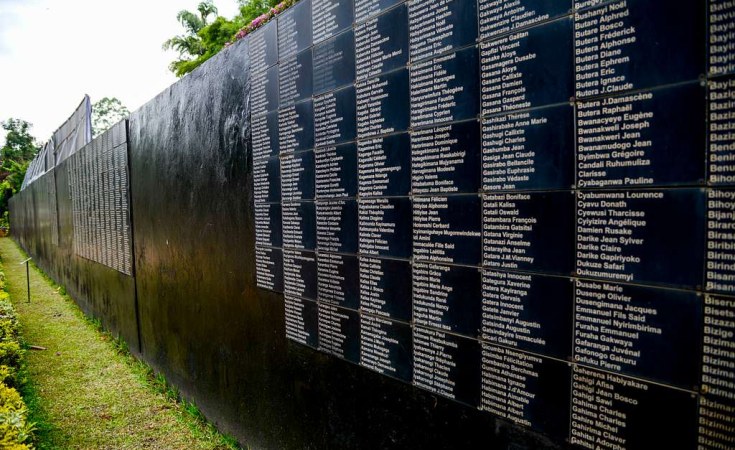As Rwandans began to commemorate the painful memories of the 1994 genocide against the Tutsis, on Sunday French President Emmanuel Macron released a video message from France.
Saying he stood by his comments in May 2021, when he acknowledged France's failure to heed warnings of looming massacres, Macron once again stopped short of an official apology.
"I have no word to add, no word to take away from what I told you that day," Macron said. "We have all abandoned hundreds of thousands of victims to this infernal closed door."
At the time of the genocide, the French government had been a long-standing backer of Rwanda's Hutu-dominated regime, leading to decades of tensions between the two countries.
Perezida w'u Bufaransa, Emmanuel Macron yifatanyije n'u Rwanda mu kwibuka ku nshuro ya 30 Jenoside yakorewe Abatutsi.Yavuze ko u Bufaransa bwemera uruhare rwabwo muri ayo mateka kandi ko buzakomeza kuba ku ruhande rw'u Rwanda.Ati "Amateka agomba gukomeza kuvugwa, amateka... pic.twitter.com/oA3TyHorC0-- IGIHE (@IGIHE) April 7, 2024
However, the French presidency's communication office had published on Thursday a different text for his speech, stating that Macron would release a message saying France and its Western and African allies "could have stopped" the bloodshed, but lacked the will to do so.
The eventual message did not however represent a significant step forward from Macron's earlier comments on the genocide.
Need for more
In Rwanda, and among the Rwandan survivors living in France, the change of tone surprised many.
Philibert Gakwenzire, president of Ibuka, the French association of genocide survivors, told RFI that he wants Paris to go further, to the point of an official apology, even though he remains satisfied with a message of continuity in the improvement of Franco-Rwandan relations.
"We must go futher, we need apologies and reparations for the survivors," he said, "and to contribute to the fight against historical denial of the genocide, which is rife all over the world.
Macron didn't go to Kigali this year, but sent his foreign affairs minister, Stéphane Séjourné.
La communauté internationale est réunie à Kigali aujourd'hui, afin d'honorer la mémoire des victimes du génocide perpétré contre les Tutsis, il y a 30 ans. #Kwibuka30 pic.twitter.com/mbYWkdU3mQ-- Stéphane Séjourné (@steph_sejourne) April 7, 2024
French General Jean Varret also told RFI that France had all the means to influence the then-Rwanda president Juvenal Habyarimana, if it had started early, from 1989/1990.
On Sunday, in Paris the Eiffel Tower displayed illuminated letters which read as 'Kwibuka' (To Remember) 30 in Kinarwanda, for the official commemorations of the 30 years after the start of the 1994 Rwandan genocide.
France remains one of the top destinations for Rwandans fleeing justice at home, even though its justice has tried and convicted half a dozen people over the killings.
In Rwanda, commemoration continues until early July, as President Kagame also campaigns for his reelections for polls schedules mid-July.
(with AFP)


